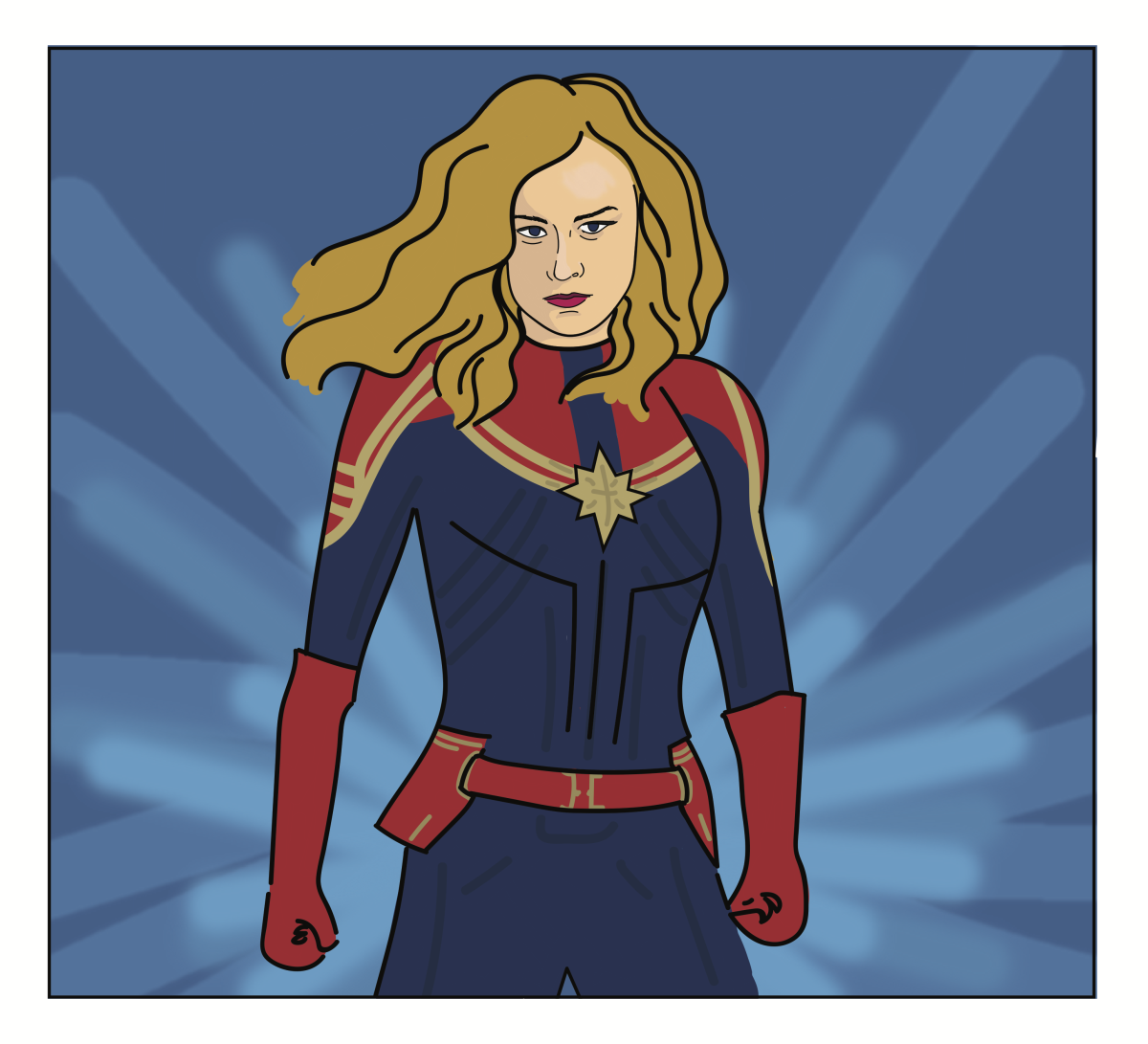How the new superwoman film can change Marvel
Since Marvel Comics’ inception in 1961, the comics have sorely lacked female representation.
Marvel’s first female superhero was introduced the same year, though only in a supporting role: Susan Storm as the Invisible Girl, a member of The Fantastic Four.
Many of Marvel’s female superheroes, including the Invisible Girl, possess powers that are belittling in comparison to their male superhero counterparts. For example, female heroes in Marvel history have exhibited the abilities of invisibility, shrinking and small-scale telekinesis.
In 2019, Marvel has major issues with female representation in their movies. Since 2008, when the first “Iron Man” movie came out in 2008, they’ve released 21 films within the Marvel Cinematic Universe (MCU).
Of these 21 films, only five female superheroes have been featured: Black Widow, Scarlet Witch, Wasp, Gamora and now Captain Marvel, played by Brie Larson. These five aren’t enough.
If it sounds like I’m bashing Marvel here, that’s because I am. I’ve been a superhero movie fan since I was a toddler wandering around in my Spider-Man pajamas, watching and re-watching the original Tobey Maguire movies with my Spider-Man plushies in hand.
At one point in my life, I longed to see a solo Black Widow movie, with all the badassery that the character possessed in the first “Avengers” film. Now, I feel like a jaded old woman. Black Widow and her ever-changing haircut, half-unzipped skin-tight suit and pointless “witty” comments bore me.
Scarlet Witch’s magic powers and red leather duster don’t do much for me either. These characters had so much potential, but since their plot lines were written and directed by men who didn’t care about their character development or competency as true superheroes, Black Widow and Scarlet Witch have been relegated to the sidelines.
I find myself much more invested in the powers and plot lines of Captain America, Spider-Man and Black Panther. It’s not like I want to favor the male superheroes over the female ones, but the women of the MCU honestly sort of stink.
Black Widow doesn’t even have powers. What she does have is KGB training and years of experience as a spy and assassin.
You’d think that a character like that would be incredibly fun to watch and that the announcement of her solo film would excite people. I would have been excited five years ago, before Black Widow’s story was written to include an ill-timed and uncomfortable relationship with the Hulk/Bruce Banner, a strange plot line about infertility and multiple poor suit and hairstyle changes.
As for Scarlet Witch, her last MCU appearance in “Avengers: Infinity War” included her failing to save the world in order to preserve her AI robot boyfriend, Vision, for a few more minutes because she loved him oh so much. (Spoiler: he dies anyway, and half of Earth’s population turns into dust, which she could have prevented).
Following the major success of DC’s “Wonder Woman” in 2017, Marvel released “Captain Marvel” on March 8 (also International Women’s Day).

You’d think this would have come earlier, after the incredible success of Marvel’s other examples of diversity in film. “Black Panther,” with a predominantly black cast, just took home three Academy Awards, and “Spider-Man: Into the Spider-Verse” (albeit not in the MCU), with the first onscreen portrayal of Miles Morales, of black and Puerto Rican descent, claimed Best Animated Feature.
“Captain Marvel” feels like a watershed for superhero films: no romance, no flimsy, sexualized suit, just a superhero realizing the full extent of her power and saving the day. And I can’t wait to watch her do it again in future MCU films.
The film centers on Carol Danvers, a former Air Force pilot who gets her superpowers from an alien race. Captain Marvel is an absolute badass and an overall great character.
She’s cool, and nothing about her character feels forced. She is a great superhero if I’ve ever seen one.
At the heartbreaking end of “Infinity War”, a crucial call is made to Danvers, setting her up to save the world in the next Avengers film, “Endgame,” set to be released in April 2019. I’m sure she’ll save both the day and the world, but I’m not sure her salvation will be enough.
Will “Captain Marvel” become part of a trend of female-led superhero movies, or will it be another outlier for Marvel?
After seeing the movie, I’m certainly Carol Danvers’ biggest fan, but I’m hoping the film will be a harbinger of more on-screen female superheroes who can hold their own without the irritating presence of a demeaning romance plot line or lesser powers.
I want movies like “Wonder Woman,” “Captain Marvel” and the eventual “Black Widow” to become the norm. I want them to bring forth a new generation of lifetime superhero fans like me, but that these new fans will grow up admiring women who are just as cool as Captain America and Spider-Man.













































